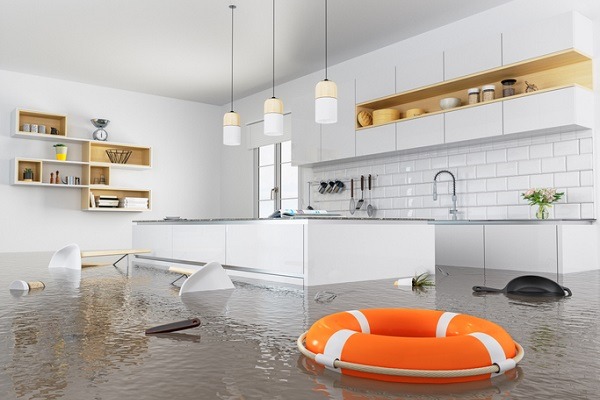
Do I Need a Leak Sensor for My Tech-Savvy Home?
Share
In our increasingly high-tech world, the question of do I need a leak sensor is popping up in tech circles more than ever. Are these devices just another gadget to add to your smart home checklist, or do they provide indispensable utility? For the tech professional and enthusiast, knowing the ins and outs of such a device is crucial.
Understanding the role of leak detectors is the first step. These sensors work as vigilant guards, protecting your home from potentially disastrous water damage. But how do they integrate into your tech-forward home, and what benefits do they really offer?

The Anatomy of Leak Sensors
In essence, leak sensors are designed to notify homeowners of water leakage at the earliest possible moment. They come equipped with advanced technologies such as Wi-Fi connectivity, allowing real-time updates directly to your smartphone. But how exactly do these little devices detect leaks? To gain more insight into the mechanisms, check out how water sensors work.
Why Tech Enthusiasts Should Consider Leak Sensors
For those deep in the tech world, understanding the practical applications of a leak sensor is essential. As with other home automation devices, these sensors provide seamless integration with smart home ecosystems, compatible with platforms like Google Assistant, Alexa, and Apple HomeKit. For those evaluating their options, seeing best leak detection devices might offer guidance.
The Cost of Water Damage: A Statistic-Laden Truth
Water damage is one of the most common issues that homes face, and the statistics are quite telling. Whether it's due to a burst pipe, a faulty appliance, or uncontrolled external forces, leaks can silently cause astronomical damage before being detected. For more context on AI in water management, which helps counter this threat, explore this resource.
Critical Features to Look for in Leak Sensors
Several essential features should capture the attention of tech enthusiasts considering a leak sensor investment:
- Connectivity: Opt for devices that offer strong Wi-Fi signals and seamless app integration for real-time alerts.
- Battery Life: Long-lasting power is crucial for ensuring your device continues running during an unexpected outage.
- Diversified Detection: Advanced models provide added features such as temperature and humidity monitoring to preempt conditions leading to leaks.
For further details on multiple sensor attributes, check which ones are most beneficial through leak detector reviews.
Integrating Leak Sensors into a Tech-Enhanced Lifestyle
Integrating a leak sensor doesnt just stop at installationthese smart devices can play a vital role in your day-to-day life. From alerting you to leaks while you're on vacation to sending invaluable data to your home management system, these devices are much more than simple alarms. They can act in tandem with smart detection systems using AI, to not only report but also potentially divert or mitigate damage. Curious about integrating sensors? Heres a guide to how leak detectors work.
Making Informed Decisions: Buy, Maintain, Protect
Choosing the right leak sensor can be a daunting task given the plethora of options available. Here are some critical steps:
- Research: Delve into comprehensive reviews and consider expert opinions about device performance, reliability, and cost-effectiveness.
- Maintenance: Regular testing and maintenance ensure continuous protection against leaks.
- Safeguarding: With proper integration into your home, a leak sensor can offer adequate protection, saving you from costly repairs.
For those curious about where to purchase a reliable sensor, here are some purchase avenues.

FAQ
What should I consider when choosing a leak sensor?
When selecting a leak sensor, consider connectivity, detection range, and features like temperature monitoring and app notifications. Resources like leak detection systems can offer comparative insights on different models.
How do leak sensors integrate with existing smart home systems?
Most modern leak sensors are designed with smart home compatibility, using Wi-Fi or Bluetooth to communicate with home automation systems, enabling easy monitoring and control through a unified interface.
Are advanced sensors really worth the extra cost?
Advanced sensors might carry a higher upfront cost, but their additional features like AI-driven analytics, extended battery life, and smart detection capabilities often provide longer-term savings by preventing significant water damage, justifying their investment.
